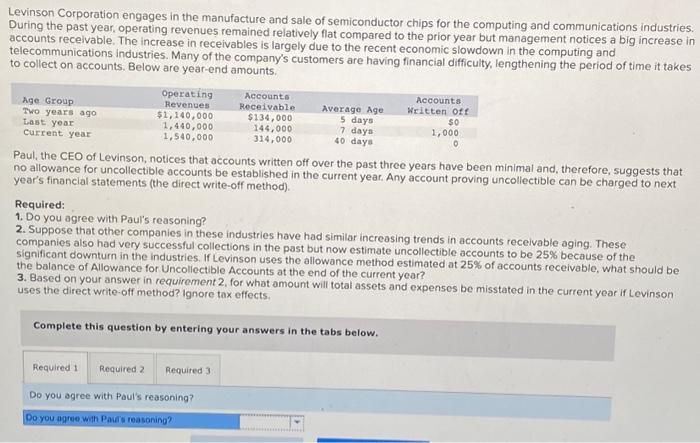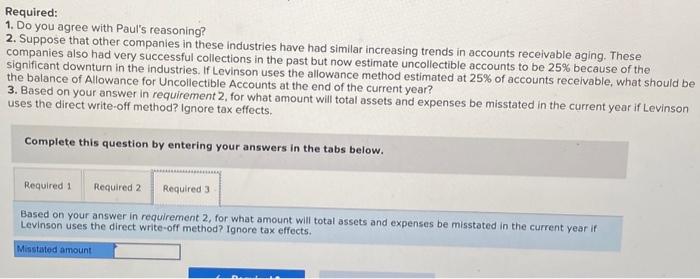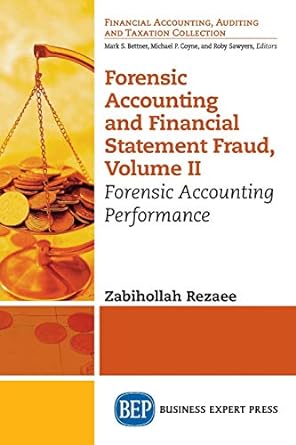Levinson Corporation engages in the manufacture and sale of semiconductor chips for the computing and communications industries. During the past year, operating revenues remained relatively flat compared to the prior year but management notices a big increase in accounts recelvable. The increase in receivables is largely due to the recent economic slowdown in the computing and telecommunications industries. Many of the company's customers are having financial difficulty, lengthening the period of time it takes to collect on accounts. Below are year-end amounts. Paul, the CEO of Levinson, notices that accounts written off over the past three years have been minimal and, therefore, suggests that no allowance for uncollectible accounts be established in the current year. Any account proving uncollectible can be charged to next year's financial statements (the direct write-off method). Required: 1. Do you agree with Paul's reasoning? 2. Suppose that other companies in these industries have had similar increasing trends in accounts receivable aging. These. companies also had very successful collections in the past but now estimate uncollectible accounts to be 25% because of the significant downturn in the industries. If Levinson uses the allowance method estimated at 25% of accounts receivable, what should be the balance of Allowance for Uncollectible Accounts at the end of the current year? 3. Based on your answer in requirement 2, for what amount will total assets and expensos be misstated in the current year if Levinson uses the direct write-off method? ignore tax effects. Complete this question by entering your answers in the tabs below. Do you agree with Paul's reasoning? Suppose that other companies in these industries have had similar increasing trends in accounts receivable aging. These companies also had very successful collections in the past but now estimate uncollectible accounts to be 25% because of the significant downturn in the industries. If Levinson uses the allowance method estimated at 25% of accounts receivable, what should be the balance of Allowance for Uncollectible Accounts at the end of the current year? Required: 1. Do you agree with Paul's reasoning? 2. Suppose that other companies in these industries have had similar increasing trends in accounts receivable aging. These companies also had very successful collections in the past but now estimate uncollectible accounts to be 25% because of the significant downturn in the industries. If Levinson uses the allowance method estimated at 25% of accounts receivable, what should be the balance of Allowance for Uncollectible Accounts at the end of the current year? 3. Based on your answer in requirement 2 , for what amount will total assets and expenses be misstated in the current year if Levinson uses the direct write-off method? Ignore tax effects. Complete this question by entering your answers in the tabs below. Based on your answer in requirement 2 , for what amount will total assets and expenses be misstated in the current year if Levinson uses the direct write-off method? Ignore tax effects









